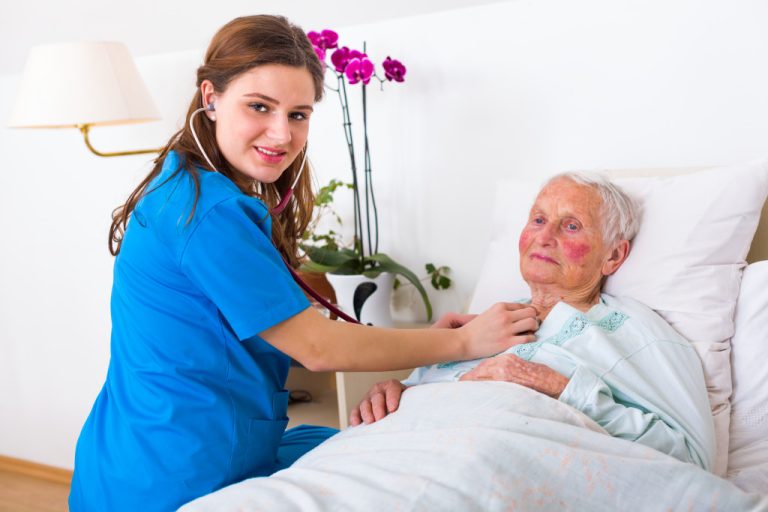- Caring for a sick elderly at home requires proper hygiene and safety measures.
- Creating a comprehensive care plan is crucial for providing individualized care.
- Monitoring vital signs can help prevent serious health complications and enhance the quality of life.
- Attending doctor’s appointments with the elderly ensures effective communication and emotional support.
- Proper preparation for emergencies and understanding Medicare and insurance coverage are essential.
Caring for a sick elderly at home can be daunting, especially if you are unprepared. It requires patience, understanding, and dedication. When caring for a sick elderly loved one at home, there are several key considerations to keep in mind that will help ensure their safety and well-being. With these tips in mind, you can provide quality care while keeping yourself healthy too!
Know How to Care for Them
Knowing how to care for your elderly loved ones is essential for quality care. Here are a few tips that can help make the process easier:
Practice Proper Hygiene & Safety Measures
Practicing proper hygiene and safety measures when caring for a sick elderly at home is crucial. This includes washing your hands frequently, wearing protective gear such as gloves and masks, and disinfecting surfaces regularly.
These measures not only protect the elderly from contracting further infections but also prevent the spread of illnesses to other family members or caregivers. It is essential to prioritize the safety and well-being of the elderly, especially those with pre-existing conditions such as weakened immune systems.
In addition to these measures, finding affordable hospital beds for sale could also aid in providing comfortable and safe care for the elderly. As an expert in elderly care, taking these precautions will ensure a safe and healthy environment for your loved ones and prevent any potentially life-threatening situations.
Create a Care Plan

Creating a care plan is essential in providing quality care for a sick, elderly person at home. It involves gathering and assessing data on the patient’s medical condition and personal needs, identifying potential risks, and developing strategies to manage and prevent complications.
Care plans typically include medication management, wound care, mobility assistance, diet and nutrition, and emotional support. Apart from ensuring that the patient receives appropriate care, a care plan can also help caregivers streamline their tasks, reduce stress, and avoid burnout.
By clearly understanding the patient’s needs and goals, caregivers can deliver individualized care and improve the patient’s overall well-being. In summary, creating a comprehensive care plan is crucial in caring for a sick, elderly person at home.
Monitor the Elderly’s Health
Monitoring the health of an elderly loved one is an essential aspect of caring for them at home. As individuals age, their bodies become vulnerable to various health complications that can be difficult to detect without proper monitoring.
This is especially important if the elderly person is sick or has a chronic illness. Regular monitoring of blood pressure, temperature, weight, and symptoms can give an early indication of any changes in their health condition.
A caregiver should record these vital signs and report any alarming changes to the healthcare provider overseeing the elderly person’s health. Proper monitoring can help prevent serious health complications and enhance the quality of life for the elderly loved one.
Attend Doctor’s Appointments with Them
When caring for sick elderly at home, attending doctor’s appointments with them is crucial. Not only does it provide emotional support, but it also ensures that vital medical information is communicated effectively between all parties involved.
As the primary caregiver, it is essential to arrive prepared with a list of questions and concerns about the elder’s health. This includes medication dosages, recent symptoms, and potential side effects.
Respecting the doctor’s time by arriving on time and being attentive during the appointment is necessary. Attending doctor’s appointments with the elderly in your care is essential to provide holistic care and ensuring that they receive the best possible medical attention.
Prepare for Emergencies

Properly preparing for emergencies is paramount when caring for a sick elderly at home. Caregivers must have a clear understanding of what to do in case of an emergency. This includes having an emergency contact list, knowing where medical supplies are located, and understanding the steps to take when a medical emergency occurs.
Being prepared is not only crucial for the well-being of the elderly patient, but it can also provide peace of mind for the caregiver. Knowing that they can handle any situation can give a sense of confidence and stability during a challenging time. In short, proper preparation is essential for the elderly patient and their caregiver’s peace of mind.
Understand Medicare and Insurance Coverage
Understanding Medicare and insurance coverage can be crucial for families caring for sick elderly loved ones at home. With rising healthcare costs, knowing what is covered and what is not is essential.
Medicare is a federal government health insurance program primarily for those over 65 years old but can also include those with specific disabilities. It is essential to understand the different parts of Medicare, such as Parts A, B, C, and D, and what they cover.
Additionally, insurance coverage outside of Medicare may be available and should be explored. A solid understanding of Medicare and insurance coverage can help families provide the best care for their loved ones while managing the financial burden of illness.
These are just a few considerations when caring for a sick elderly at home. With these tips, you can provide high-quality care while safeguarding yourself and your loved one from any possible risks.













